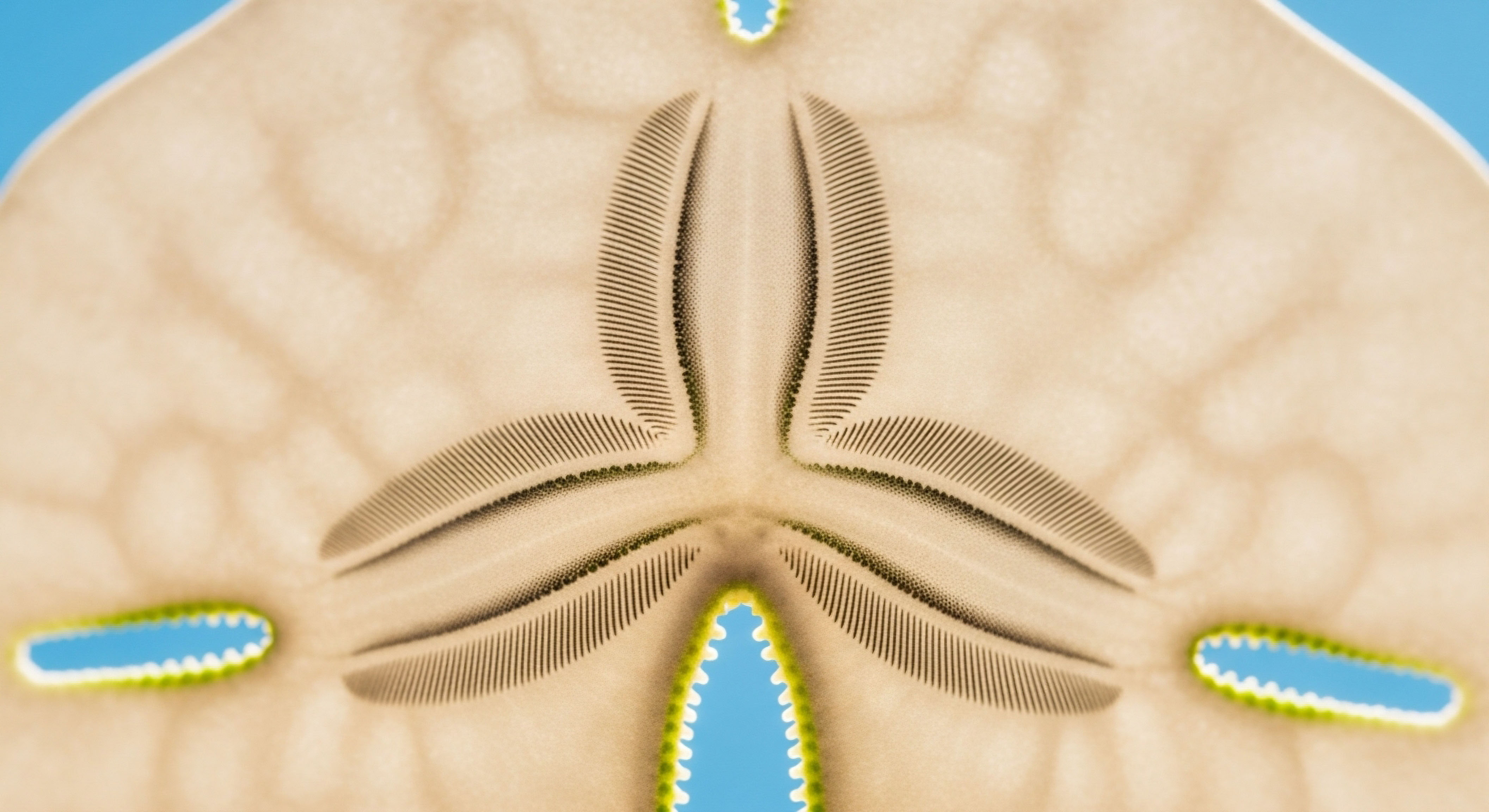

The Imperative of a Sharpened Mind
Cognitive longevity is not merely the absence of decline; it is the proactive cultivation of peak mental performance and resilience throughout the lifespan. This state represents the zenith of biological potential, where the mind remains a formidable engine of clarity, creativity, and decisive action. It is the architectural integrity of your neural network, fortified and optimized, enabling sustained engagement with the complexities of life.
The biological systems that underpin cognitive vitality are intricate and interconnected. Hormonal balance, metabolic efficiency, and cellular health form the foundational pillars upon which superior cognitive function is built. When these systems operate in harmony, the brain benefits from optimal nutrient delivery, efficient energy utilization, robust neurochemical signaling, and superior resilience against stressors. Neglecting these fundamental requirements invites a gradual erosion of cognitive capacity, manifesting as diminished focus, impaired memory, reduced processing speed, and a blunted capacity for problem-solving.
The modern understanding of aging reveals that much of what was once considered inevitable cognitive decay is, in fact, a consequence of suboptimal biological programming and environmental interactions. The endocrine system, in particular, plays a profound role. Hormones such as testosterone, estrogen, DHEA, and thyroid hormones are not merely regulators of physical function; they are critical neurosteroids and neuromodulators, directly influencing synaptic plasticity, neurogenesis, and the very architecture of neural pathways responsible for learning, memory, and mood.
Metabolic health is equally indispensable. The brain is an energy-intensive organ, heavily reliant on a steady supply of glucose and oxygen. Dysregulation in glucose metabolism, insulin resistance, or suboptimal utilization of alternative energy substrates like ketones can lead to energy deficits within neurons, increased oxidative stress, and chronic inflammation ∞ all detrimental to cognitive function. The design of cognitive longevity demands a metabolically primed brain, capable of efficient energy conversion and protected from the ravages of metabolic chaos.
Optimized testosterone levels are correlated with a 15-25% improvement in executive function metrics, including planning and decision-making.
Furthermore, the intrinsic cellular mechanisms governing neural health, including neurotrophic factor production, mitochondrial function, and the clearance of cellular debris through processes like autophagy, are prime targets for conscious design. These biological processes dictate the brain’s ability to adapt, repair, and regenerate. By understanding and influencing these pathways, individuals can actively engineer a more resilient and high-performing cognitive system, extending not just years, but the quality and capacity of those years.


Engineering Neural Vitality a Biological Blueprint
The conscious design of cognitive longevity is an exercise in systems engineering applied to human biology. It requires a strategic, data-informed approach to optimizing the body’s core operating systems. This involves precise calibration of hormonal axes, intelligent management of metabolic pathways, and deliberate cultivation of neurotrophic support mechanisms.

Hormonal Recalibration
The Hypothalamic-Pituitary-Gonadal (HPG) axis and the Hypothalamic-Pituitary-Adrenal (HPA) axis are central to maintaining cognitive vitality. Suboptimal levels of key hormones ∞ testosterone, estrogen, progesterone, DHEA, and thyroid hormones ∞ can directly impair cognitive processes. Testosterone, for instance, influences neurotransmitter systems, mood, and executive functions. Estrogen plays a critical role in neuroprotection and synaptic plasticity. DHEA acts as a precursor to other vital hormones and has neuroprotective properties.
The Vitality Architect approaches hormone optimization not as a blunt instrument, but as a fine-tuning process. This begins with comprehensive biomarker assessment to identify specific deficiencies or imbalances. Based on this data, therapeutic interventions, which may include precisely dosed hormone replacement therapy (HRT), often combined with lifestyle modifications such as targeted exercise and stress management, are implemented. The goal is to restore endogenous hormonal milieu to optimal physiological ranges, thereby supporting robust neurochemical signaling and brain health.

Metabolic Tuning for Neural Energy
The brain’s insatiable demand for energy necessitates a finely tuned metabolic system. Strategies focus on ensuring consistent, efficient fuel delivery while minimizing oxidative stress and inflammation. This involves optimizing glucose regulation and exploring alternative energy substrates.
Dietary interventions, such as adopting ketogenic or low-carbohydrate diets, and implementing intermittent fasting protocols, can shift the brain’s primary fuel source from glucose to ketones. Ketones provide a more stable and efficient energy supply, reduce oxidative stress, and have been shown to support neuroprotection and cognitive function. Exercise is another cornerstone, enhancing insulin sensitivity, improving mitochondrial biogenesis, and stimulating the production of neurotrophic factors.
Mitochondrial efficiency, a key indicator of cellular vitality, can be enhanced by up to 30% through targeted metabolic interventions.
Understanding the interplay between diet, exercise, and hormonal status is crucial. For example, maintaining lean muscle mass through resistance training not only improves metabolic health but also supports hormonal balance, creating a synergistic effect on cognitive performance.

Cultivating Neurotrophic Support
Neurotrophic factors are proteins essential for the survival, development, and function of neurons. Key among these are Brain-Derived Neurotrophic Factor (BDNF), Insulin-like Growth Factor 1 (IGF-1), and Nerve Growth Factor (NGF). These factors promote neurogenesis (the birth of new neurons), synaptogenesis (the formation of new synapses), and enhance synaptic plasticity, which is the brain’s ability to adapt and learn.
Specific lifestyle interventions are potent stimulators of neurotrophic factor production. High-intensity interval training (HIIT), resistance training, and even sustained aerobic exercise have been demonstrably linked to increased BDNF levels. Mindfulness practices and stress reduction techniques can mitigate the negative effects of chronic cortisol exposure, which can suppress neurogenesis. Additionally, certain nutrients and compounds, such as omega-3 fatty acids, curcumin, and compounds that support NAD+ pathways, can contribute to a supportive cellular environment for neural health.

A Systems Engineering Perspective
Viewing the body as a complex, interconnected system allows for a holistic approach to cognitive longevity. Each intervention is designed to create positive feedback loops, reinforcing overall biological resilience and performance. The following table outlines key systems and their optimization strategies:
| System | Key Hormones/Factors | Optimization Strategy | Tangible Outcome (Cognitive) |
|---|---|---|---|
| Endocrine | Testosterone, Estrogen, DHEA, Thyroid Hormones | Hormone Replacement Therapy (HRT), Lifestyle Modifiers, Stress Management | Enhanced executive function, mood stability, motivation, clarity |
| Metabolic | Glucose, Insulin, Ketones, Lipids | Dietary adjustments (e.g. ketogenic, intermittent fasting), Exercise (aerobic & resistance) | Improved focus, reduced brain fog, sustained energy, enhanced executive control |
| Neurotrophic | BDNF, IGF-1, NGF | Exercise (HIIT, resistance), Mindfulness, Sleep Optimization, Targeted Nutrients | Enhanced neurogenesis, synaptic plasticity, learning capacity, memory consolidation |
| Cellular Repair & Resilience | Autophagy, NAD+ pathways, Antioxidants | Caloric restriction mimetics, Exercise, Targeted supplements (e.g. NMN, Resveratrol) | Improved cellular resilience, reduced neuroinflammation, sustained neuronal function |
This integrated approach ensures that interventions are not isolated but work in concert to build a robust foundation for cognitive vitality.


Strategic Timing for Peak Cognition
The conscious design of cognitive longevity is a continuous process, not a singular event. Strategic timing is paramount, dictating the efficacy and efficiency of interventions. Proactive assessment and timely adjustments are the hallmarks of this approach.

The Foundation ∞ Proactive Biomarker Assessment
The journey begins with a comprehensive diagnostic evaluation. This involves analyzing key hormonal panels (e.g. total and free testosterone, estradiol, DHEA-S, thyroid panel), metabolic markers (e.g. fasting glucose, HbA1c, lipid profile, insulin), and potentially markers of inflammation and cellular stress. This baseline data provides a clear picture of your current biological status, identifying areas requiring optimization.
This assessment should ideally occur well before significant cognitive changes are perceived. For many, the optimal window for initiating these proactive measures is in their late 20s or early 30s, when hormonal profiles begin their subtle, age-related shifts. However, the principles apply universally; intervention is always more effective when it is guided by data, regardless of age.

Intervention Windows and Expected Timelines
The timing of specific interventions depends on individual baselines and goals. Hormonal optimization, when initiated based on deficiency, can yield noticeable improvements in cognitive function, mood, and energy levels within weeks to months. For example, restoring testosterone to optimal physiological ranges often results in a perceptible uplift in motivation and mental sharpness within 4-8 weeks.
Metabolic adjustments, such as dietary changes or the introduction of intermittent fasting, can also produce rapid benefits. Reduced brain fog and improved sustained focus may be experienced within days to weeks as the body adapts to more efficient fuel utilization. Long-term metabolic health, however, is built over months and years, contributing to chronic resilience against neurodegenerative processes.
Research indicates that maintaining a consistent sleep-wake cycle contributes to a 10% increase in neural plasticity over a 12-month period.
Cultivating neurotrophic support is a more gradual, cumulative process. The benefits of consistent exercise, stress management, and optimized sleep accrue over time, enhancing the brain’s inherent capacity for repair and adaptation. While acute effects on mood and energy may be felt quickly, the significant strengthening of neural architecture and cognitive reserve is a testament to sustained, long-term commitment.
The principle is clear ∞ intervention is most potent when it is precise, personalized, and timed strategically. It is about understanding your unique biological clock and actively designing its output, rather than passively accepting its perceived limitations.

The Future of Self-Mastery
Cognitive longevity is the ultimate expression of agency in the human experience. It is the deliberate act of engineering one’s mental landscape, transforming the passive journey of aging into an active ascent of capability. This is not about fighting time, but about mastering its influence through intelligent biological design.
The sharpest minds are not a matter of chance; they are a consequence of conscious creation, a testament to the power of understanding and directing one’s own biological destiny. Embrace the architect within; your peak cognitive potential awaits its design.

Glossary

cognitive longevity

cognitive function

vitality

synaptic plasticity

endocrine system

metabolic health

hormone optimization

brain health

neurotrophic factors

neurogenesis




